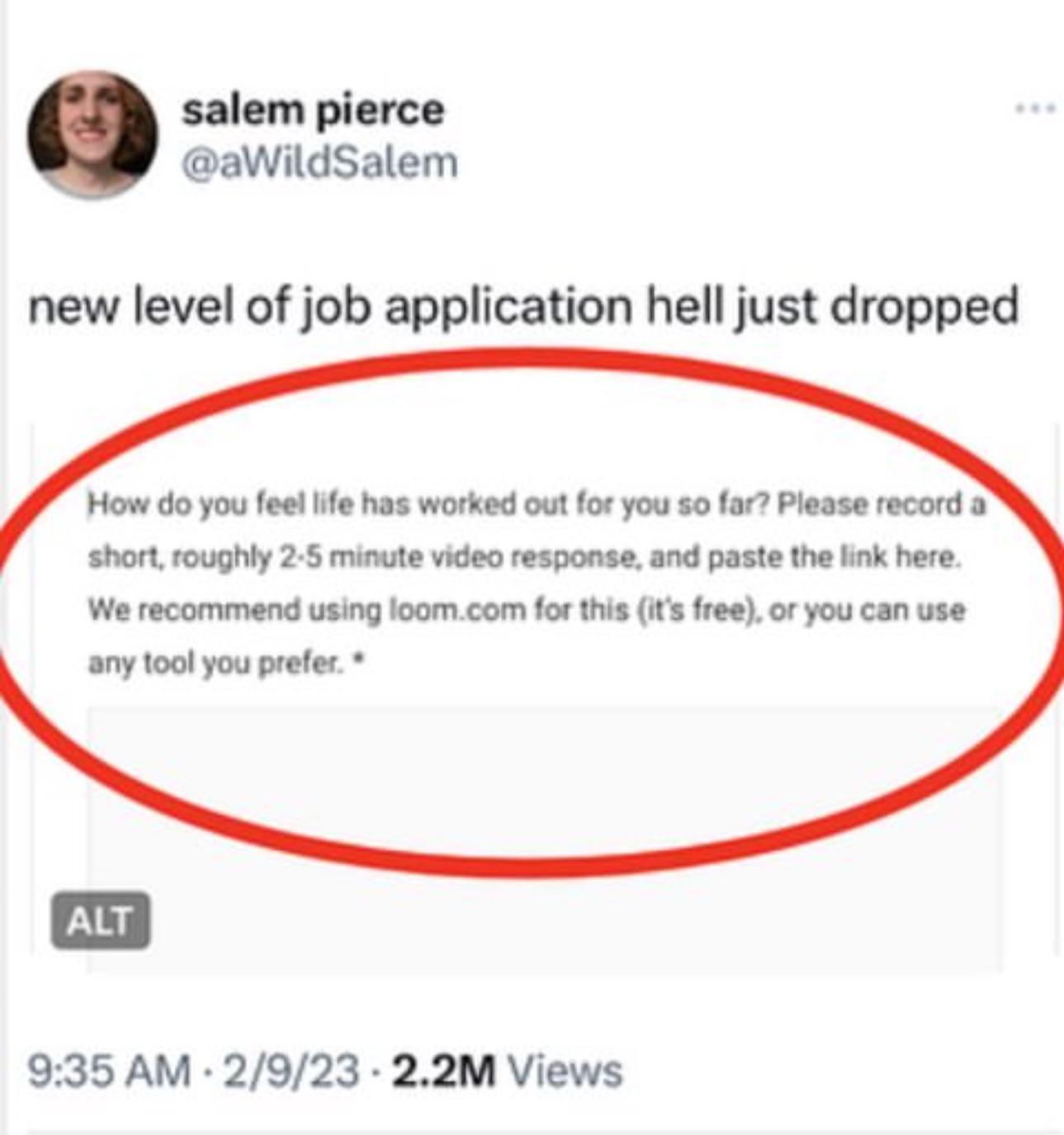this post was submitted on 09 Sep 2024
958 points (98.6% liked)
Facepalm
2650 readers
199 users here now
founded 1 year ago
MODERATORS
you are viewing a single comment's thread
view the rest of the comments
view the rest of the comments

I've been asked illegal questions, like "what is your current salary" in job applications before. I like to respond by calling it out and leaving a link to a source. I've never gotten a response from those applications though...
They probably use that to filter out people who know their rights.
Sounds like an employer that needs investigated by several departments.
That's illegal? The income question was on every single application I filled out when I was younger. When did it become illegal?
It is in CA, which is where both I and the company I was applying for were based at the time
Hmm, I lived in California for a long time and companies definitely asked on a regular basis. Do you know when it was made illegal?
According to the link I posted in a different reply in this thread, at least since 2018. But also just because something is illegal doesn't mean companies won't do it.
Ah okay, this was long before 2018.
"How much money are you looking for in this role" is very common. "How much are you making right now" is not allowed.
This depends entirely on where you are. This article is from last year, so it could have changed since then, but there is no federal prohibition on requesting your current pay in an interview, @AwkwardLookMonkeyPuppet@lemmy.world
Love the swing states with preemptive laws on the books to prevent progress
How is it even legal to pass a law saying you can't regulate this thing? That seems highly contestable.
Probably for the same reason its perfectly legal for a state with republican controlled state senate to hold a post-election lame duck session where they shove through a bunch of legislation limiting the powers of the state governor because their guy happened to lose the election
It would sure be neat if the Democrats were as motivated to pass legislation as the Republicans can be.
They’re too busy trying to make their party so big tent that they guarantee no one in it will be able to agree on anything.
California definitely used to have a shit load of companies asking for salary history. Idk if the law has changed, or if it's just not enforced.
Didn’t expect my state on here. It’s a routine question in interviews
Ok, where is said source?
Section #25
(Given both I and the company I was applying for were CA based at the time)
For the lazy: